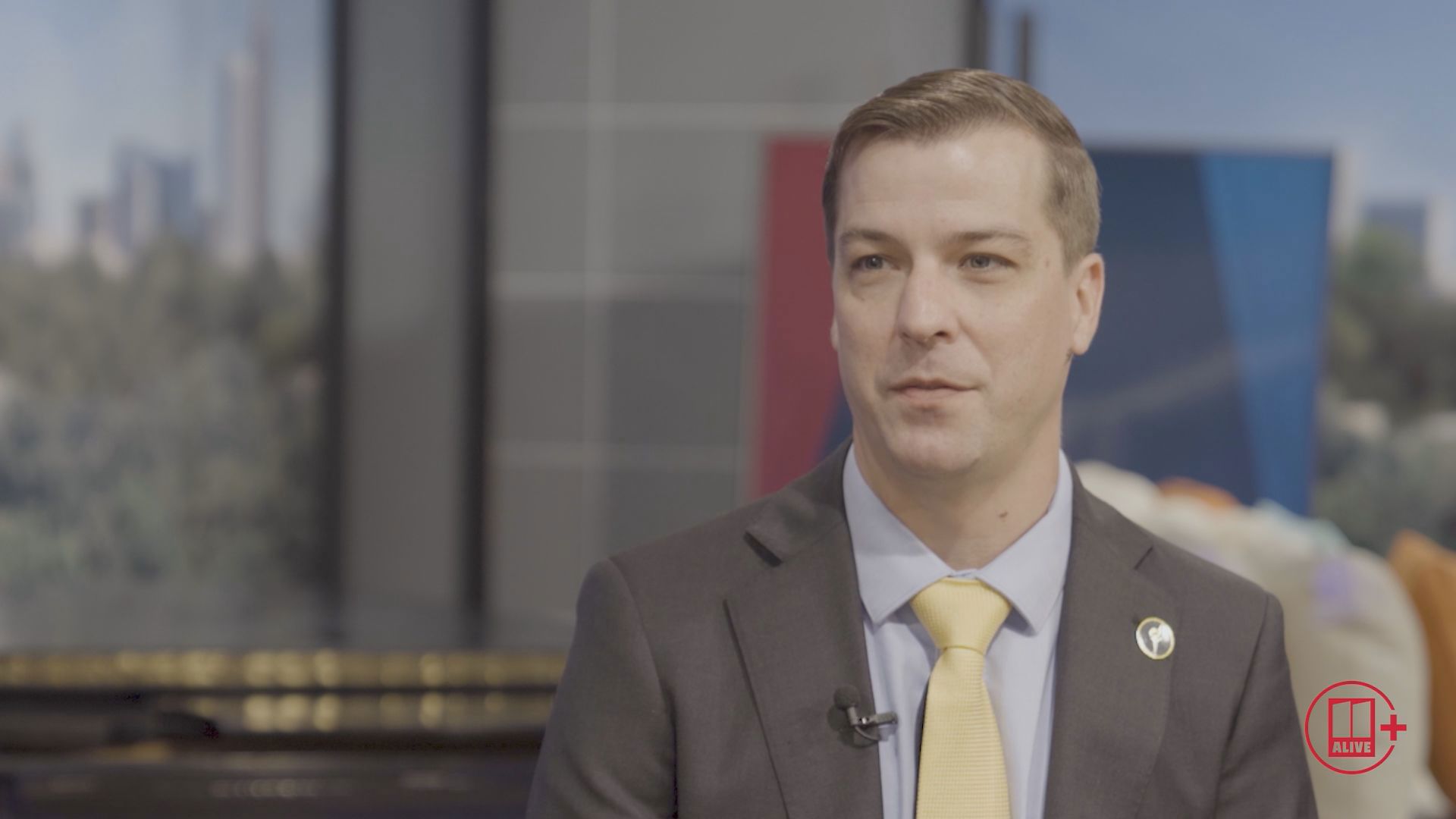GEORGIA, — In the race for the White House this November, one candidate is looking to disrupt the two-party system. The Libertarian nominee for President of the United States, Chase Oliver, has his eyes on the Oval Office and a broader goal of giving voters another option than red or blue.
During his 2022 U.S. Senate run in Georgia, Oliver garnered roughly 81,000 votes, forcing Democratic candidate Reverend Raphael Warnock and Republican candidate Hershel Walker into a runoff. With just 2.1% of the vote, Oliver tells 11Alive he saw this as a success of the run, accomplishing one of his goals of disrupting the two-party system.
“That's what voters are looking for, is to actually disrupt the status quo and to show that there's an alternative option on the ballot that can actually grow in the long term,” said Oliver during an interview on 11Alive's Sunday politics show, The Georgia Vote. “I disrupted the two-party system quite well by forcing that runoff. You know, encouraging voters to know that they have more than two choices, and that's why over 80,000 Georgians came out and selected me as their candidate because they wanted to signal both they supported the libertarian message, but also they are not in support of a broken two party system,” he continued.
According to his Campaign, the Libertarian’s name will appear on ballots across most of the country, including several key swing states, such as his home state of Georgia, Pennsylvania, Wisconsin, Arizona, Nevada, Michigan, and North Carolina. He tells 11Alive that his goal across the country is to give voters a choice they feel represents them.
“My goal is to provide voters a true choice on the ballot they can feel good about voting for. So many people don't even get out to vote because they just don't see a choice that represents them and that's a true travesty of our republic,” said Oliver. “You know, like four in 10 voters just don't feel represented and I want voters to know that they can get out and support somebody without having to say, ‘Well, I'm voting for this because I don't like the other person’, which is all you're getting from Republicans and Democrats. Many of these voters who are voting for Trump or voting for Harris are doing so because they don't like the alternative, Trump or Harris,” he continued.
When asked what it means to be a Libertarian in 2024, Oliver said allowing people to live their own lives and limiting the government's power to protect civil liberties without controlling every aspect of American life.
“I say, if you're not harming anybody, your life is your life, your body's your body, your business is your business, and your property is your property. It's not mine, and it certainly isn't the government’s,” said Oliver.
Many see Oliver’s run for the White House as a longshot, but he tells 11Alive that while his ultimate goal is to sit in the Oval Office, he’s also running this campaign to build up the Libertarian party long-term. A big win he is seeking is ballot access for other Libertarian candidates across the country.
“So there are wins like ballot access wins here in the state of Georgia. We can win ballot access for future candidates to run statewide. There are other states across the country that rely on this presidential and vice presidential vote to earn that ballot access across the country. We want to make it easier for libertarians and others to be able to run,” said Oliver.
He also believes his party is giving Americans other options that could influence major parties to adopt more representative policies.
“If you get out and vote libertarian this election, perhaps the Democrats and Republicans adopt policy strategies that align more with you. They say, ‘Hey, this is what these people wanted to see, that's why I'm going to support this in the future,” said Oliver.
Extended interview with Chase Oliver
In the conversation with 11Alive, Oliver discussed how his run for the White House is giving voters an alternative option that they may be more aligned with and a chance to disrupt the two-party system.
Watch the full video below.

